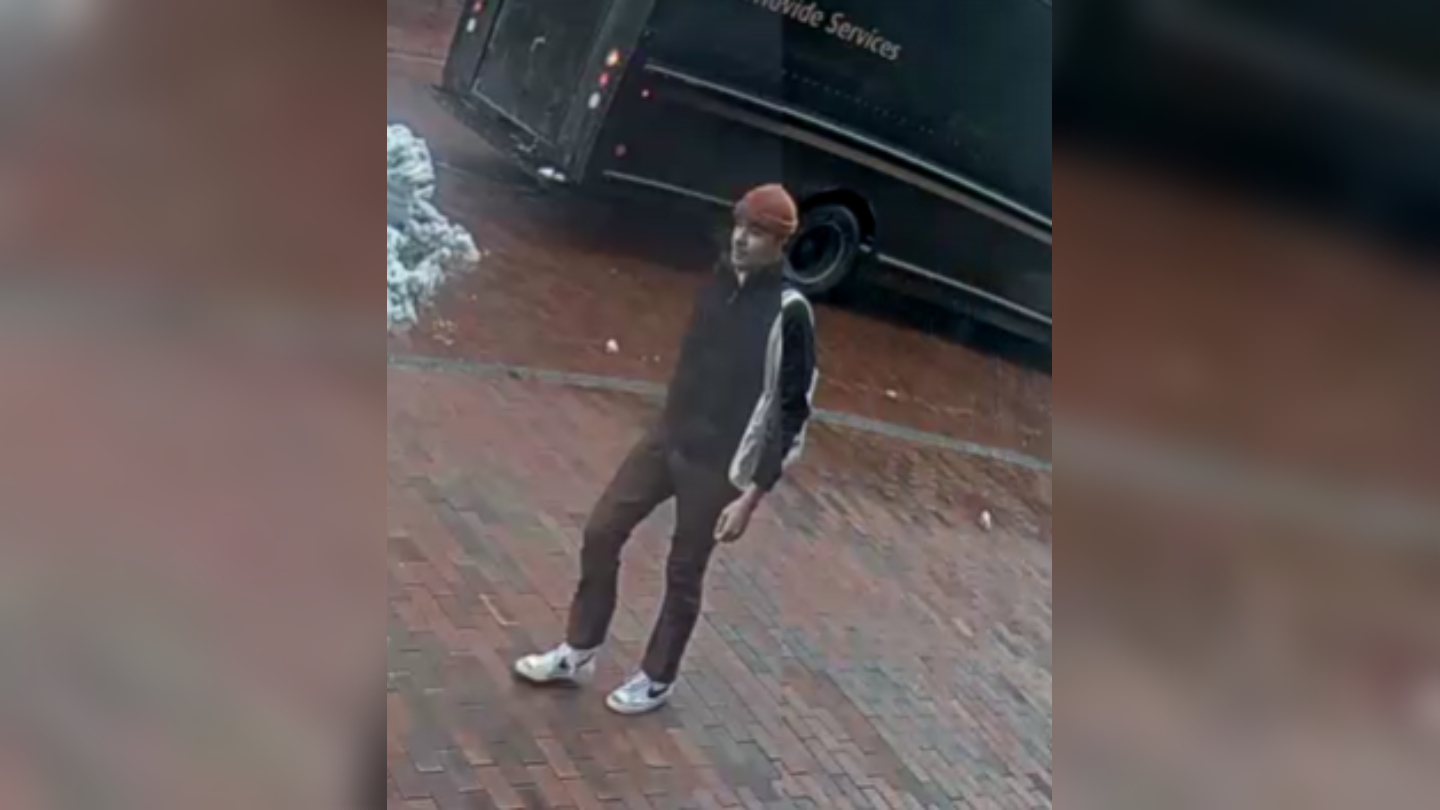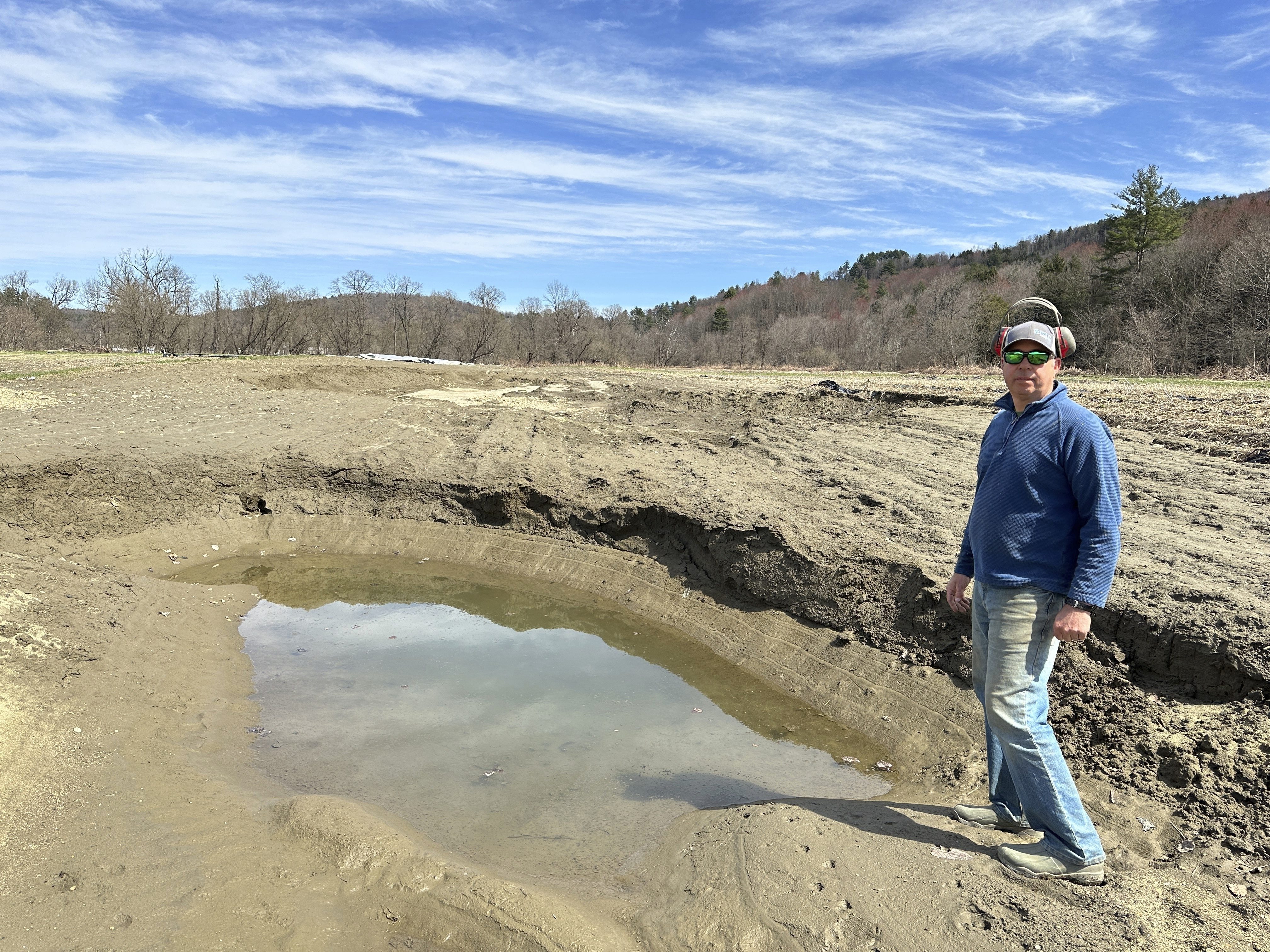A New York City religious scholar appeared in a Vermont courthouse Wednesday, denying a criminal charge stemming from a heated traffic stop this summer.
"Would you accept a not guilty plea," defense attorney Robert Appel requested of acting Judge Claude Buttrey Wednesday in the Vermont Superior Court’s Orange County Criminal Division.
Rabbi Berl Fink, 57, of Brooklyn, was vacationing with family in New England in August, when a Vermont State Trooper tried pulling him over on I-91 in Thetford.
Trooper Justin Thompson said the Rabbi was going 83 miles per hour in a zone where the posted speed limit is 65 mph.
It took about four miles for the driver to stop, the trooper said, after he slowed down to a normal highway speed.
Thompson, with his gun drawn, repeatedly shouted orders to Fink to get out of the car and onto the ground, even cuffing his wife.
The rabbi’s wife said "I’m petrified" at one point, which could be heard in footage of the traffic stop taken by the officer’s dash camera and released last month by Vermont State Police.
Vermont
The latest news from around the state
One of the rabbi’s sons would later say this all felt like the family was the target of a terrorist attack, the Associated Press reported.
Assemblyman Dov Hikind, D-Brooklyn, who represents Rabbi Fink’s community in the New York State Assembly, was in court for support. He said the family has been deeply affected and traumatized by what appeared to him to be an aggressive handling of the stop.
After the hearing, Hikind said of his constituent, "He’s gentle. He’s sweet, and wonderful. And what they went through that night? Oh my god. Oh my god."
In pleading not guilty to an accusation of attempting to elude, Fink said he was confused about whether he was the actual target of the stop, and only kept driving those four miles because he saw no safe place to pull over on an unfamiliar road.
The reason for the confusion, attorney Appel explained, was that the officer’s lights were activated before Fink had passed him on the highway, so he thought they must have been on for a different reason.
That stretch of I-91 is particularly dark, and it was raining that night, the lawyer noted. The traffic stop happened just after midnight on August 8.
"There was no attempt to elude," Appel told the judge.
As to whether Trooper Thompson acted appropriately, the Vermont State Police Advisory Commission reviewed his actions and found no evidence of bias or profiling, it said in a report issued last month.
Additionally, the SPAC said having a gun drawn and shouting commands from a protected area of the vehicle follows troopers’ training for a potentially risky stop, because they cannot know what kind of situation they’re going into.
What made the stop risky, the report said, was a combination of factors including its remote location, Trooper Thompson’s initial lack of backup, and the fact the vehicle had driven suspiciously for four miles before stopping.
"Although we now know that this was not a dangerous situation, Trooper Thompson could not have known that during the time the vehicle failed to stop… or at the time of the stop," the SPAC report said.
The SPAC report also contained the decision that "at no time was Trooper Thompson rude or unprofessional in his conduct with the driver or occupants."
Appel disputes that finding.
"I’m just confounded by the overreaction and the overreach by the trooper the night in question," he told reporters after the hearing.
Rabbi Fink declined necn’s request for an on-camera interview, but said off-camera that at first, all he really wanted was an apology from the state police.
However, the family is now considering possible civil action, Hikind said, suggesting there are elements of the traffic stop that raise concerns about whether their civil liberties were violated.
Appel said he plans to ask a judge to toss the criminal case entirely.
At the conclusion of the dash camera footage released by the Vermont State Police as part of its review of the case, Trooper Thompson and Rabbi Fink shake hands and appear to interact in a congenial way.
In the recording from the night in question, Thompson wishes the rabbi well, saying, "be careful getting to where you’re going," and recommended that Fink pull over next time an officer activates the cruiser’s siren and lights.



